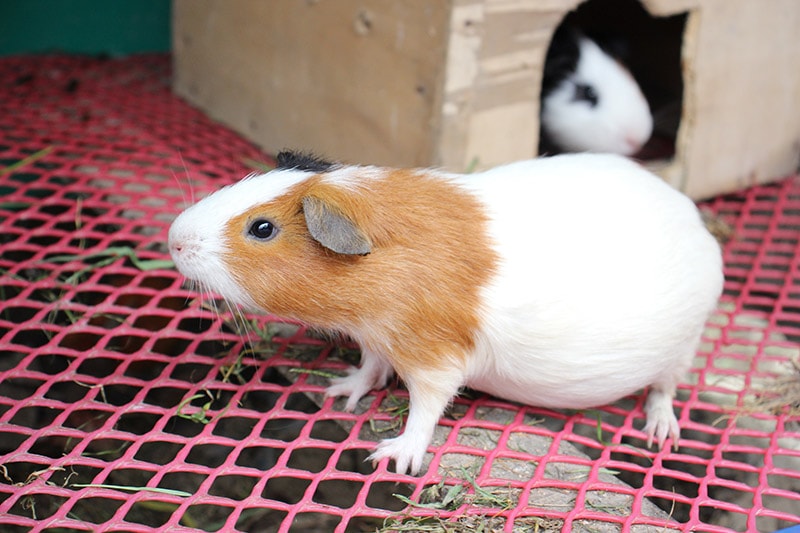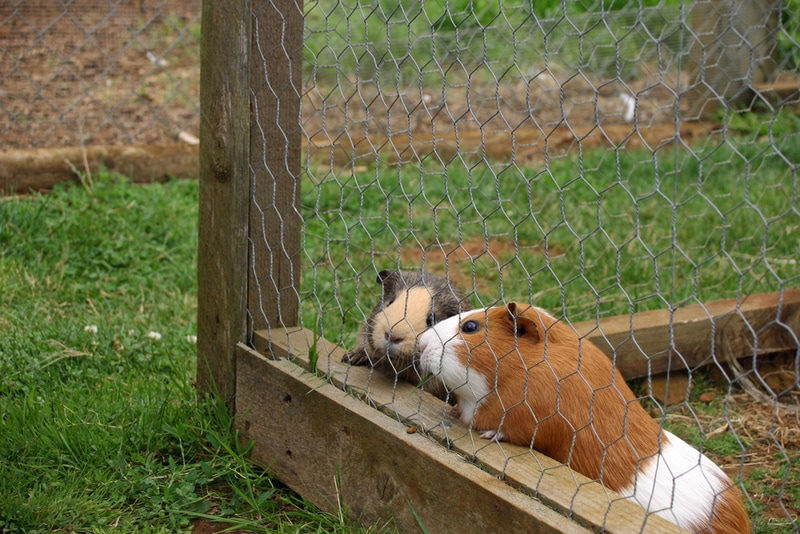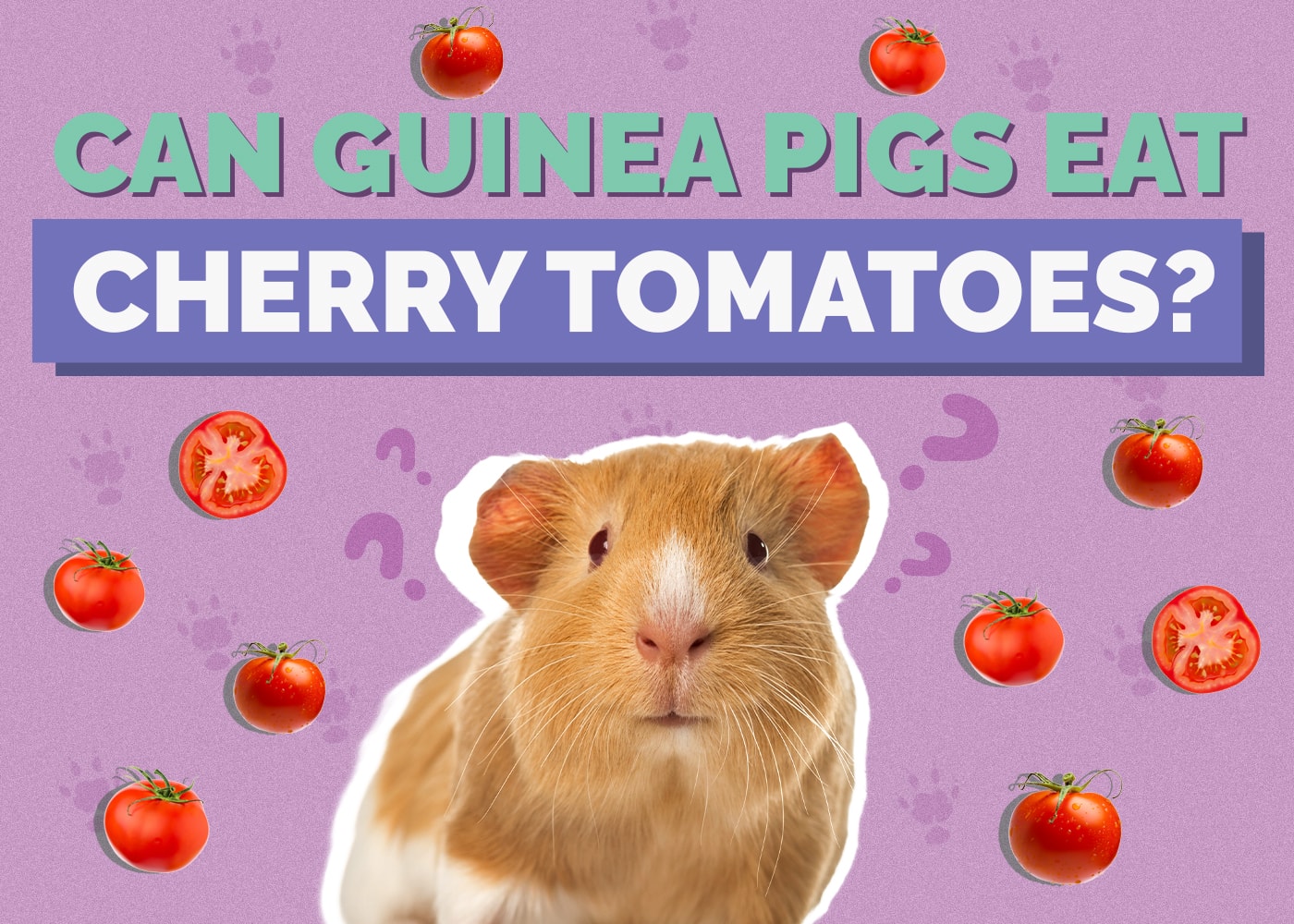Can Guinea Pigs Eat Dill? Vet-Approved Nutrition Facts, Concerns, & FAQ
Updated on
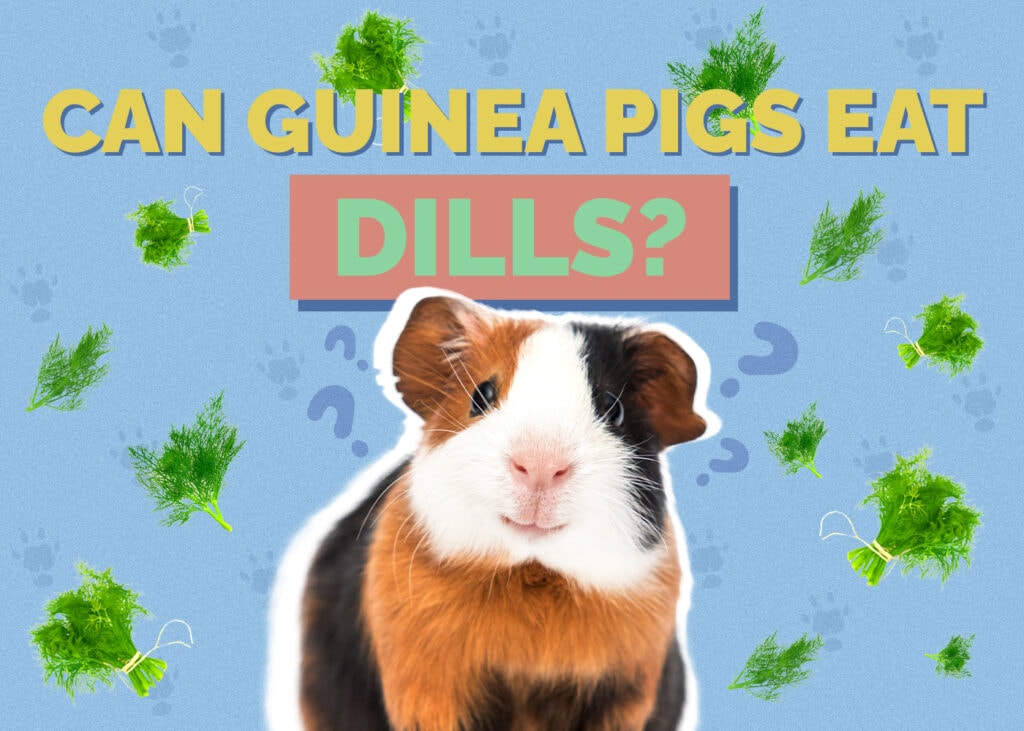
Click to Skip Ahead
Guinea pigs are cute little animals that make fun pets. They are good with kids if handled gently, they don’t take up as much space as a dog, and their curiosity makes them entertaining to interact with. As a guinea pig owner, you want the best for your pet, so naturally, you’re curious about what types of foods are and are not good for them. For example, you may want to know whether your guinea pig can eat dill.
The short answer is yes, you can incorporate a small amount of dill into your rodent’s overall diet. However, the long answer is more complicated. Here is everything that you should know to have peace of mind when offering this fragrant herb to your companion.
Dill Nutrition Facts & Health Benefits
Several nutrients in dill are healthy for guinea pigs, so a bit of this herb can be a great addition to their meals. Still, it should never make up a large part of their diet. Here is a breakdown of the beneficial components of dill:
| Nutrient | Amount Per 5 Sprigs |
| Vitamin C | 0.85 mg |
| Vitamin A | 77.2 IU |
| Zinc | 0.009 mg |
| Protein | 0.035 g |
| Fiber | 0.021 g |
Vitamin C is important for guinea pigs because they cannot manufacture it themselves, and the nutrient is vital for the proper development and maintenance of the joints and muscles. It also supports a strong immune system and helps with wound healing. A vitamin A deficiency can lead to problems like weight loss, eye problems, and even death. Zinc is crucial for immune function and wound healing of guinea pigs, and a lack of it can result in signs of listlessness and scabby skin. Protein helps build a strong body and provide energy. Finally, fiber helps keep the digestive tract in good working order.
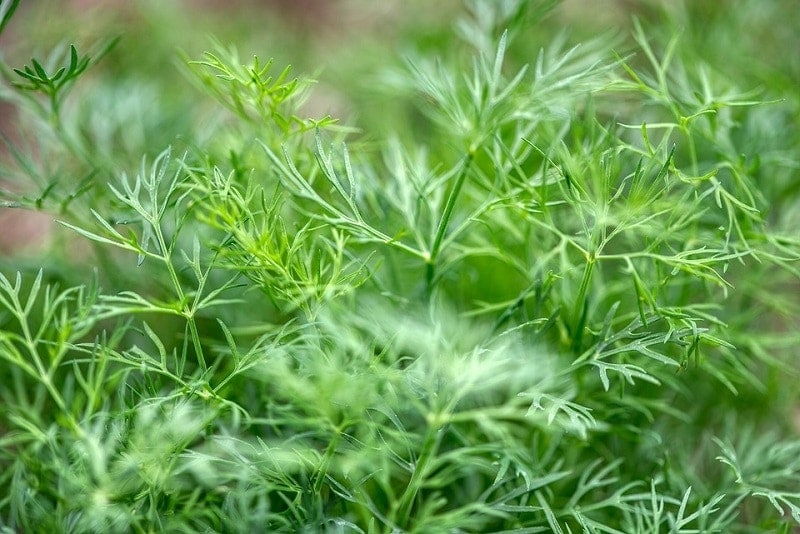
The Concerns of Feeding Dill to Guinea Pigs
While occasionally offering dill to your guinea pig can be healthy, giving them too much or feeding it to them too often can be a cause for concern. Your guinea pig’s diet should be 85% good quality hay such as Timothy hay, around 1 cup of mixed vegetables and a teaspoon of guinea pig pellets. Herbs and fruits are for occasional feeding or treats.
Dill is high in calcium, and excess calcium must be expelled via a guinea pig’s urine. If too much of it is present in the diet, it may lead to problems like urinary tract stones. It’s not completely understood what causes urinary stones, but it is believed that diets high in calcium contribute to the problem.
Second, dill does not contain enough of the nutrients that a guinea pig needs for good health and a high quality of life. Feeding too much dill to your guinea pigs limits the other types of food that they can eat, so their nutrition won’t be as well-rounded as it could or should be.
FAQ
How Much Dill Should a Guinea Pig Eat?
Dill should be offered to your guinea pig as an occasional treat, snack, or meal supplement and not as a regular part of their diet. A few sprigs once or twice a week should be enough to add variety to their meals while still making room for all the other healthy foods and commercial pellets that your pet should be enjoying regularly. Some guinea pigs do not like the taste and/or texture of dill, anyway, so don’t pressure your guinea pig into eating it if they are not interested. They won’t experience any health problems by avoiding dill.
How Should Dill Be Fed to Guinea Pigs?
You don’t have to do anything special to prepare dill for your guinea pig to enjoy. It’s always a good idea to thoroughly rinse the dill to get rid of dirt and other contaminants that might be on it. You can offer dill sprigs as they are or cut them into bite-sized pieces, depending on you and your guinea pig’s preferences. Dill should always be served fresh and raw, never cooked, as the nutrients in it can leach out.
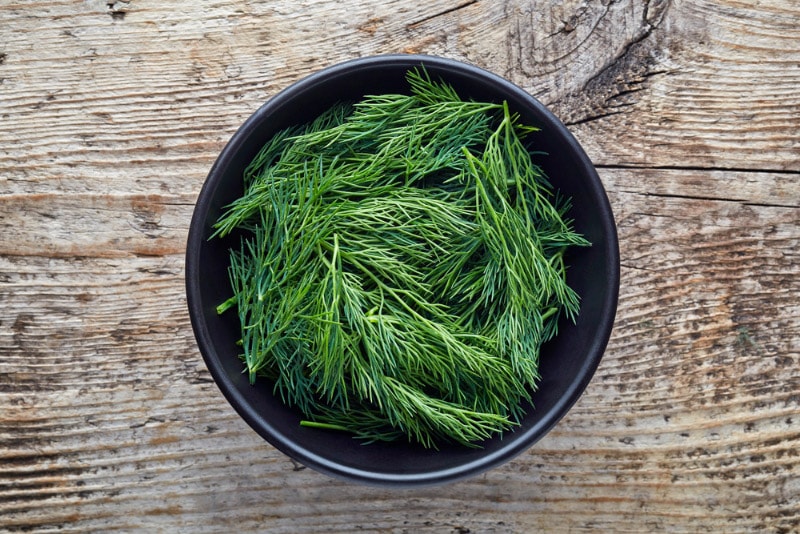
What Other Herbs Can Guinea Pigs Eat?
Your guinea pig can enjoy various other herbs in addition to or instead of dill. Keep in mind that no herbs should make up a majority of your pet’s diet, and they should always be considered an occasional addition to their snacks and/or meals. These herbs include:
- Parsley
- Thyme
- Cilantro
- Mint
- Basil
- Oregano
- Arugula
- Marjoram
- Marigold
- Borage
You can switch things up and have your guinea pig’s diet be varied throughout the week to ensure that all their nutritional requirements are being met.

Conclusion
It’s okay for your guinea pig to enjoy dill as an occasional part of their diet. There are many nutrients in this herb that are beneficial, but there are also a few concerns to keep in mind. Good quality hay and vegetables should make up the majority of their daily diet. If you’re unsure of whether your guinea pig should be eating this herb for any reason, consult your veterinarian.
Featured Image Credit: glebchik, Shutterstock


